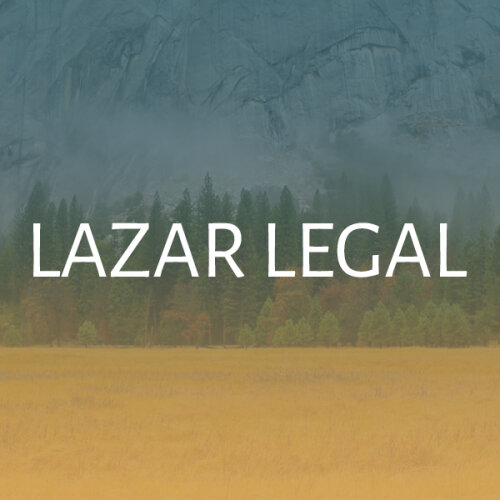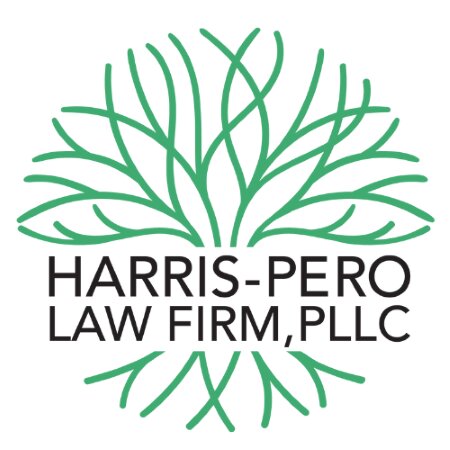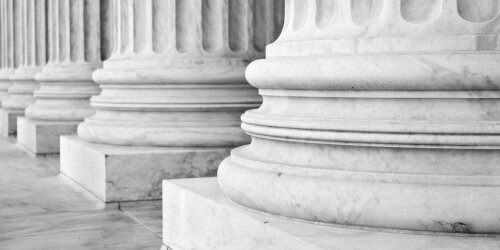Best Communications & Media Law Lawyers in New York
Share your needs with us, get contacted by law firms.
Free. Takes 2 min.
Or refine your search by selecting a city:
List of the best lawyers in New York, United States
About Communications & Media Law in New York, United States
Communications and media law in New York covers the legal framework governing the creation, distribution, and regulation of information by various means such as television, radio, newspapers, online platforms, advertising, and telecommunications. New York is a significant hub for the media and entertainment industries, and its legal landscape is shaped by both state and federal regulations. Communications law often intersects with issues of free speech, reputation, privacy, intellectual property, and technology. Media law encompasses the legal protections for journalists, publishers, broadcasters, and digital content creators, as well as considerations for consumers and citizens.
Why You May Need a Lawyer
There are several scenarios in which seeking legal assistance in communications and media law becomes crucial, especially in New York's complex regulatory environment. Some common situations include:
- Defending against or pursuing claims for defamation, libel, or slander related to published or broadcasted statements.
- Navigating intellectual property rights, such as copyright infringements involving original content or trademarks.
- Responding to allegations of invasion of privacy, including the unauthorized use of likeness or confidential information.
- Addressing regulatory compliance issues for broadcasters, online media outlets, and telecommunications providers.
- Negotiating contracts for talent, freelance contributors, publishers, and content distributors.
- Ensuring advertising and marketing materials comply with state and federal laws prohibiting false or misleading claims.
- Managing litigation over broadcast licensing and FCC regulations.
- Seeking redress for censorship or First Amendment violations.
- Advising on digital media law, social media content, and user-generated content liability.
Given the security, business, and reputational interests at stake, consulting a lawyer can help protect your rights and ensure compliance with applicable laws.
Local Laws Overview
New York has a dynamic legal environment for communications and media, shaped by both its state statutes and influential federal laws. Some key legal aspects include:
- Defamation Law: New York's defamation laws (libel and slander) are notable for providing special protections for media entities, requiring that public figures show “actual malice” to succeed with claims.
- New York Civil Rights Law: Sections 50 and 51 protect against the unauthorized commercial use of a person's name, portrait, or picture, often invoked in privacy and publicity disputes.
- Freedom of the Press: Protected under both the First Amendment and Article 1 Section 8 of the New York Constitution, although this right is not absolute and can be balanced against privacy, security, or public interest concerns.
- Media Shield Law: New York provides strong statutory protection for journalists, allowing them to decline to reveal confidential sources in most situations.
- Advertising Rules: The state regulates both online and offline advertising to prevent false or deceptive claims, enforced by the New York Attorney General’s office and the Federal Trade Commission.
- FCC and Federal Regulations: Many communications matters, such as radio and television broadcasting, are federally regulated by the FCC, but state and local licensing and permitting may also apply.
- Online Content and Cyberlaw: Emerging areas like social media liability, user privacy, and cyberharassment are increasingly relevant in New York courtrooms and legislation.
Frequently Asked Questions
What is considered defamation in New York?
Defamation in New York occurs when someone makes a false factual statement about another person or entity that damages their reputation. Defamation includes both libel (written or published statements) and slander (spoken statements). To succeed, the plaintiff must typically prove the statement was false, published or spoken to a third party, and caused harm to their reputation.
Is truth a defense to defamation claims?
Yes, truth is a complete defense to defamation claims in New York. If the allegedly defamatory statement can be proven true, the claim against the defendant will generally fail, regardless of the harm caused.
What protections exist for journalists and their sources?
New York State has a robust “Shield Law” protecting journalists from being compelled to disclose confidential sources or unpublished information obtained during newsgathering. This protection applies to traditional and, in many cases, non-traditional media workers.
Can I use someone’s image or likeness in an advertisement in New York?
Generally, you cannot use another person's name, likeness, or image for advertising or trade purposes without their written consent. This is protected under the New York Civil Rights Law and violations can lead to civil lawsuits.
How does New York regulate online content and social media?
While federal law often governs online speech and platform liability, New York enforces privacy, harassment, and copyright laws that impact online content creators and distributors. Recent initiatives address cyberbullying, revenge porn, and online defamation.
What must advertisers do to comply with New York law?
Advertisers must ensure that all claims are truthful, not misleading, and substantiated. New York targets deceptive business practices through consumer protection laws, enforced by state agencies and the FTC. Special rules apply to certain products and services.
Can I record phone calls or conversations in New York?
New York is a “one-party consent” state for recording conversations, meaning that at least one party involved in the communication must consent to the recording. Unauthorized recording without such consent could violate state law.
What rights do public figures have in media disputes?
Public figures have a higher burden to prove defamation. They must show that the allegedly defamatory statements were made with “actual malice” - that is, with knowledge of falsity or reckless disregard for the truth.
Are there licenses required to start a media outlet in New York?
Traditional broadcast outlets (radio and television) require federal FCC licenses. Print and online publications generally do not require special licenses, but must comply with business registration and other applicable state laws.
What can I do if my intellectual property is infringed online?
If your copyrighted material or trademark is used without permission online, you may be able to send a takedown notice under the Digital Millennium Copyright Act (DMCA) or file suit for infringement in New York courts. It is wise to consult a qualified attorney for assistance.
Additional Resources
The following organizations and governmental bodies can be helpful for individuals seeking more information or assistance with communications and media law issues in New York:
- New York State Bar Association - Media and Communications Law Committee
- New York Attorney General’s Office - Consumer Frauds & Protection Bureau
- Federal Communications Commission (FCC)
- Reporters Committee for Freedom of the Press
- Society of Professional Journalists, New York Chapter
- Media Law Resource Center
- New York Civil Liberties Union (NYCLU)
- United States Copyright Office
- New York State Division of Consumer Protection
These organizations can offer guidance, publications, or, in some cases, direct support and referrals.
Next Steps
If you are facing a legal issue in the realm of communications and media law, the following steps can help you protect your rights and interests:
- Document all relevant facts, communications, and documents related to your issue.
- Research your specific concern using reliable sources or consult the organizations listed above for initial guidance.
- Consider reaching out to a qualified New York communications and media law attorney for a confidential consultation. Many lawyers offer initial consultations to assess your case and explain your options.
- Review any correspondence, contracts, or alleged infringements with your attorney to determine the best course of action.
- Be cautious about making public statements or taking steps that could affect your legal position before consulting counsel.
Securing experienced legal representation can help you navigate complex communications and media laws, protecting your personal, business, and professional interests in New York's fast-paced and high-profile media environment.
Lawzana helps you find the best lawyers and law firms in New York through a curated and pre-screened list of qualified legal professionals. Our platform offers rankings and detailed profiles of attorneys and law firms, allowing you to compare based on practice areas, including Communications & Media Law, experience, and client feedback.
Each profile includes a description of the firm's areas of practice, client reviews, team members and partners, year of establishment, spoken languages, office locations, contact information, social media presence, and any published articles or resources. Most firms on our platform speak English and are experienced in both local and international legal matters.
Get a quote from top-rated law firms in New York, United States — quickly, securely, and without unnecessary hassle.
Disclaimer:
The information provided on this page is for general informational purposes only and does not constitute legal advice. While we strive to ensure the accuracy and relevance of the content, legal information may change over time, and interpretations of the law can vary. You should always consult with a qualified legal professional for advice specific to your situation.
We disclaim all liability for actions taken or not taken based on the content of this page. If you believe any information is incorrect or outdated, please contact us, and we will review and update it where appropriate.
Browse communications & media law law firms by city in New York
Refine your search by selecting a city.














